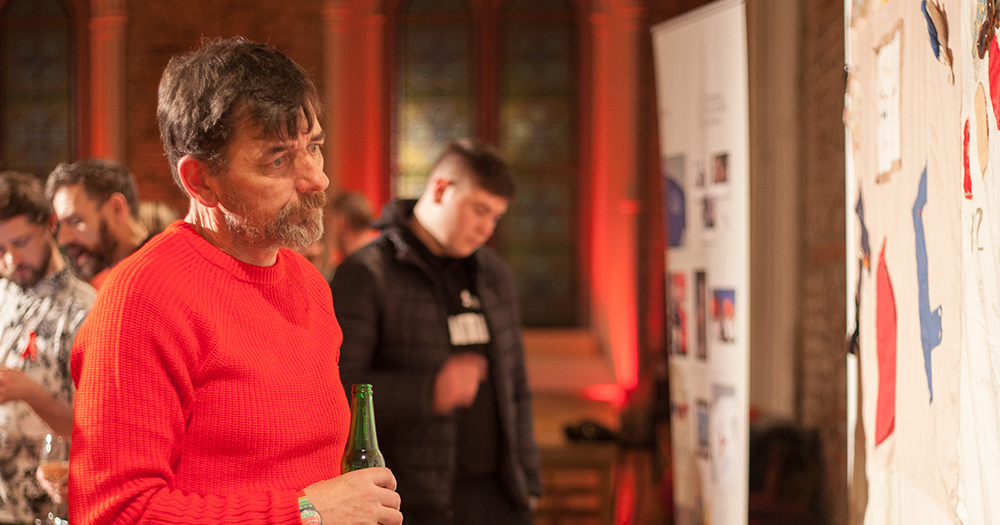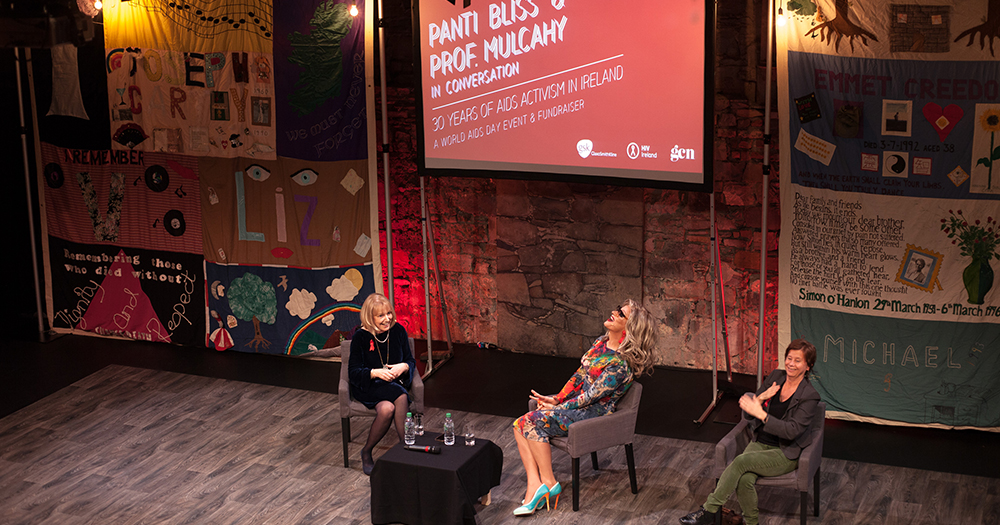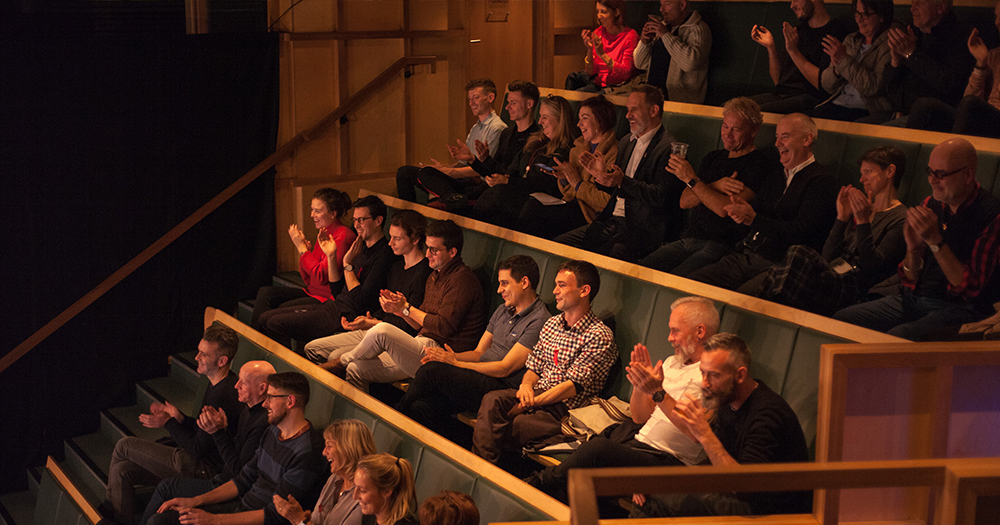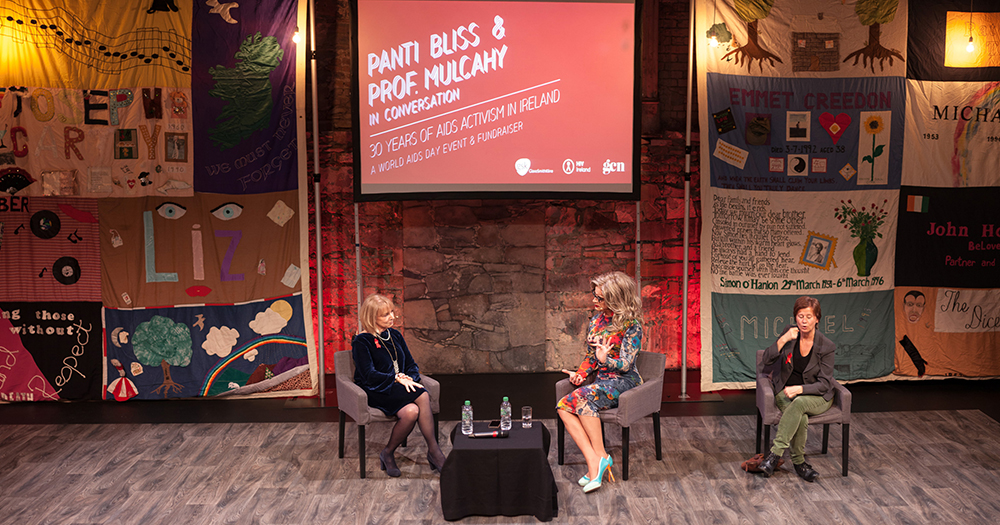Last night, Panti Bliss hosted a conversation with Professor Mulcahy exploring the legacy of AIDS activism in Ireland, the changing landscape of medical research and new challenges in light of the recent HIV spike.
The mise en scène was beautifully set with a number of panels from the Irish Names Quilt which were kindly provided by custodian Mary Shannon. This set the stage for a conversation that looked to the future while remembering the past.

Professor Mulcahy and Panti spoke about the journey from conversations around death to where we are today with Panti sharing her own experience being diagnosed in 1995:
“On my first visit to James, you (Professor Mulcahy) saw me and you tried to make it not totally black at the time.
“Then I was sent to the social worker who is there to see every new patient and the social worker basically told me ‘Right, we’re going to make dying as easy as possible’. She was telling me I could get a blanket allowance and I could get the dole because I wouldn’t be able to work of course and all this stuff”
Panti was diagnosed the same year that there was a watershed moment in terms of the development of antiretrovirals and so Professor Mulcahy and her colleagues knew that patients were going to live much longer and potentially survive.
Mulcahy recalled a patient who had booked his own funeral and had to go and get his money back after the new drugs became available.

Professor Mulcahy spoke about how she sees the future of HIV prevention being at the centre of community-led initiatives:
“I think my role will diminish and the roles of the hospitals will diminish. I think where the future is, is in the community. So if I was to ask the community to do anything, it would be to set up more testing. I think they will take over dispensing PrEP, I think they will take over PEP.
“I think it will be programmed, I’ll be happy to drive it. When people want things to be kept in a hospital that’s because they want to keep their own importance and they want to create a mystique around treatment. Is patients are well, that does not need to happen. A lot of the European countries, Germany and even Russia are now looking at the communities to develop community-based programmes.”

Initiatives like KnowNow are helping to increase the rates of early diagnosis which is key in managing the condition.
Offering free, confidential, rapid HIV testing, KnowNow can be accessed in bars, clubs, saunas and community centres across the country. These peer-led, non-clinical sessions deliver results within 60 seconds, thereby eliminating the stress and waiting-times you might find in a doctors office.
To learn about KnowNow, see http://www.knownow.ie/
© 2018 GCN (Gay Community News). All rights reserved.
Support GCN
GCN is a free, vital resource for Ireland’s LGBTQ+ community since 1988.
GCN is a trading name of National LGBT Federation CLG, a registered charity - Charity Number: 20034580.
GCN relies on the generous support of the community and allies to sustain the crucial work that we do. Producing GCN is costly, and, in an industry which has been hugely impacted by rising costs, we need your support to help sustain and grow this vital resource.
Supporting GCN for as little as €1.99 per month will help us continue our work as Ireland’s free, independent LGBTQ+ media.
